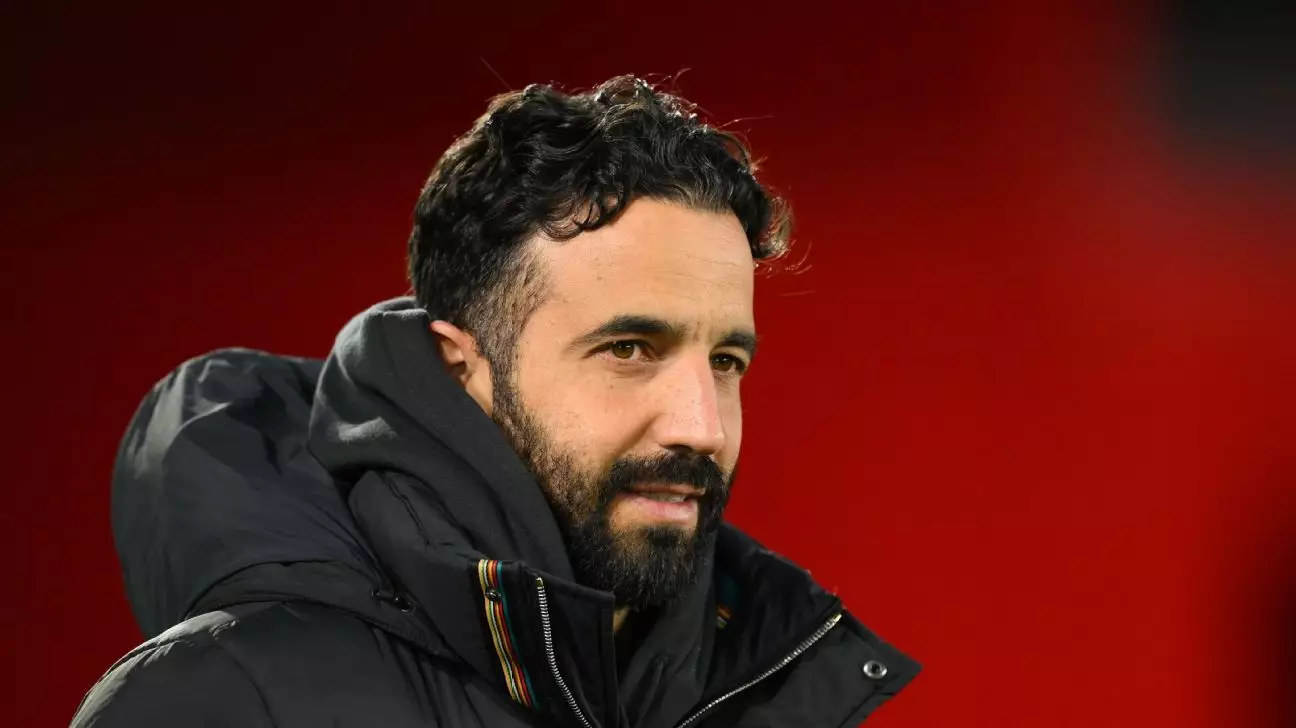As Manchester United navigates through one of its most tumultuous seasons in recent history, the sentiment surrounding the club isn’t one of optimism but rather a mix of determination and sober realism. Sitting in the 13th position on the Premier League table, United finds itself 36 points adrift from league leaders Liverpool. Coach Ruben Amorim’s candid acknowledgment that dreaming of a Premier League title next season would be “crazy” reflects the sober assessment of the club’s current predicament. The fact that they are preparing to face their city rivals, Manchester City, who have dominated English football with six championships in the last seven seasons, only adds to the gravity of the situation.
Amorim’s admission that restoring the glory of Old Trafford isn’t a one-year project encapsulates the enormity of the task ahead of him. Though he has been tasked with leading the revival after a disconcerting 12-year title drought, the complexities of modern football make such a turnaround a gargantuan challenge.
A Vision for the Future
Ambitiously, Manchester United has earmarked the 2027-28 season to reclaim their rightful place at the pinnacle of English football, coinciding with the club’s 150th anniversary. This target presents a three-year period where success is not just hoped for but is systematically planned. Amorim confesses to being in a “rush” to achieve this, maintaining a focus on short-term improvements while keeping the long-term vision intact. Yet, this urgency must be tempered with reality—a reality that sees formidable adversaries like Liverpool, Arsenal, and Manchester City constantly improving and evolving, which only deepens the chasm United needs to bridge.
What Amorim articulates reveals an acute awareness of the gap between aspiration and reality. He understands that while ambition is essential, it must be anchored in the present capabilities of the squad. The Portuguese manager’s strategic focus on player adjustments and standards speaks volumes about the depth of the task. It isn’t merely about adding talent; it’s about reshaping the club’s identity, which requires patience, commitment, and an adequate timeline.
Player Dynamics and Challenges
The winds of change are felt within the squad, particularly concerning how players must adapt to new standards set by Amorim. His emphasis on bettering his team through recruitment shows a pragmatic approach, seeking “one or two big players” without losing sight of the existing qualities within the squad. Nevertheless, with the spotlight on recruitment, it’s vital to understand that not all marquee signings yield immediate results.
Amorim’s optimistic outlook on players like Kobbie Mainoo returning from injury underlines the importance of nurturing homegrown talent who can develop within the system. Yet, while reinforcements are needed, the core of the team must equally evolve. This challenge is not confined to mere acquisitions; it encompasses fostering a competitive spirit and a mindset that can withstand the rigours of top-flight football. Thus, galvanizing existing players to elevate their levels has become imperative.
Facing the Giants
As Manchester United prepares to clash with their city rivals, the impending match serves as both a litmus test for progress and an opportunity to challenge the top-tier dominance of City. Amorim’s acknowledgment that his side is not in a position to be the biggest contender just yet further illustrates the realistic hopes he has for immediate outcomes.
The outcome against City may be pivotal, not just in terms of points but also in morale. A resilient performance could set the stage for injecting confidence into a squad that is still searching for its identity. Ultimately, these matches are steps towards reformation, creating a narrative of improvement that fans and players alike can rally around.
The Road Ahead
While the road to rediscovering former glories is riddled with obstacles, what stands out in Amorim’s approach is the delicate balance of ambition and realism. The journey requires more than just scientific methods; it demands a transformative mindset, one that can manage expectations while simultaneously aiming high.
In tackling systemic issues and establishing a winning culture, Manchester United can slowly navigate from the shadows of middling performances into the light of sustained competitiveness. With the club’s collective ambition and the steely resolve of its leadership, the dream of recapturing the Premier League title, though distant, is becoming more tangible. Each step forward is crucial in dismantling the hardships of today and ushering in a golden era tomorrow.

